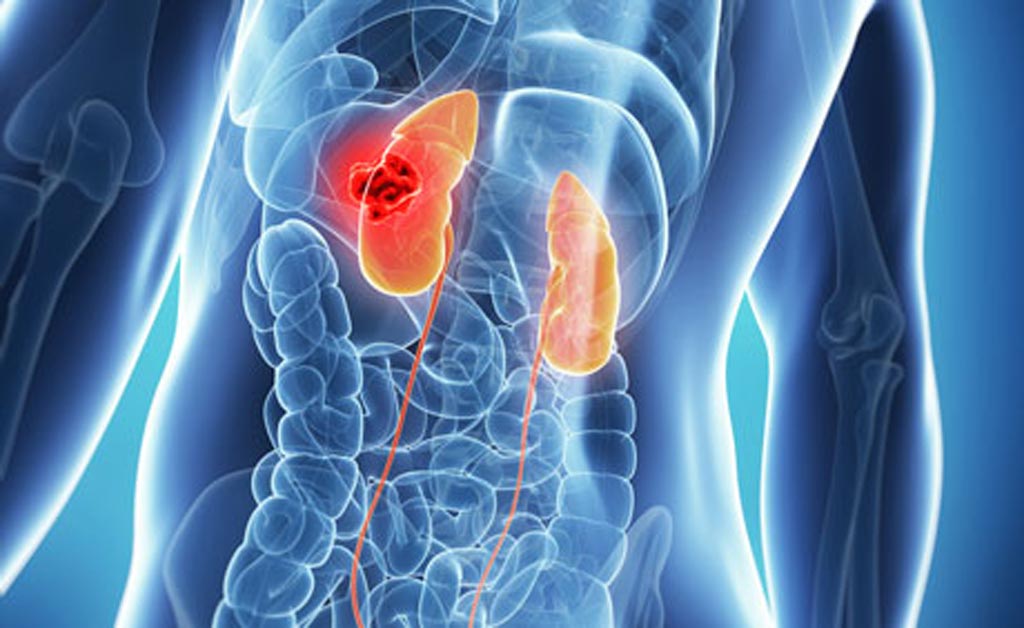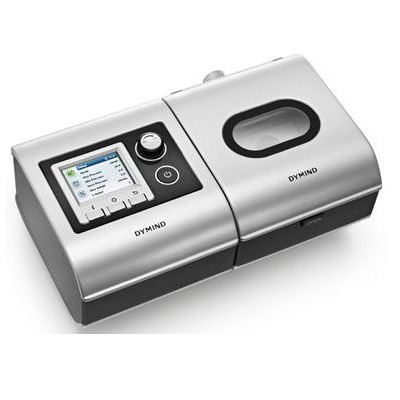Bariatric Surgery Reduces ESRD and Kidney Failure Risk
|
By HospiMedica International staff writers Posted on 02 Apr 2018 |

Image: A new study shows obesity surgery can protect against kidney disease (Photo courtesy of SA).
A new study shows that bariatric surgery is associated with a long-term protection against end-stage renal disease (ESRD) and chronic kidney disease stage 4 (CKD4).
Researchers at the University of Gothenburg (Sweden), Sahlgrenska Academy (SA; Göteborg, Sweden), and other institutions conducted a prospective study in 4,047 patients participating in the Swedish Obese Subjects (SOS) study. The study cohort, consisting of 2,010 patients, underwent banding (18%), vertical banded gastroplasty (69%), or gastric bypass (13%); the 2,037 patients in the control group received usual obesity care. All patients were followed for a median of 18 years. Incidence of ESRD and CKD4 was obtained by crosschecking the SOS database with the Swedish National Patient Register.
The results showed that ESRD occurred in 13 patients in the surgery group and 26 patients in the control group, with 23 CKD4 events in the surgery group and 39 in the control group. Patients who underwent weight-loss surgery ran a significantly lower risk of developing severe chronic kidney disease and ESRD, when compared to conventionally treated patients. Those with initial evidence of kidney damage--as manifested by macroalbuminuria--benefited the most, indicating that bariatric surgery prevents progression of pre-existing kidney injury towards ESRD. The study was published on February 26, 2018, in the International Journal of Obesity.
“Obesity is a major public health problem leading to co-morbidities such as diabetes, hypertension, and kidney failure. Bariatric surgery results in pronounced and maintained weight loss and prevention of obesity-related diseases and their complications,” concluded senior author Per-Arne Svensson, PhD, of the SA Institute of Health and Care Sciences. “Most studies of bariatric surgery on kidney disease show improvements after surgery. Our study showed for the first time that bariatric surgery is associated with a long-term protection against ESRD and CKD4.”
Kidney disease is usually progressive, with each stage determined by glomerular filtration rate (GFR), and dependent on treatment and response. The kidneys of people with ESRD function below 15% of their normal ability. Chronic kidney disease typically does not reach ESRD, the fifth stage of the progression, until 10-20 years after initial diagnosis, at which time the only treatments left include dialysis or a kidney transplant.
Related Links:
University of Gothenburg
Sahlgrenska Academy
Researchers at the University of Gothenburg (Sweden), Sahlgrenska Academy (SA; Göteborg, Sweden), and other institutions conducted a prospective study in 4,047 patients participating in the Swedish Obese Subjects (SOS) study. The study cohort, consisting of 2,010 patients, underwent banding (18%), vertical banded gastroplasty (69%), or gastric bypass (13%); the 2,037 patients in the control group received usual obesity care. All patients were followed for a median of 18 years. Incidence of ESRD and CKD4 was obtained by crosschecking the SOS database with the Swedish National Patient Register.
The results showed that ESRD occurred in 13 patients in the surgery group and 26 patients in the control group, with 23 CKD4 events in the surgery group and 39 in the control group. Patients who underwent weight-loss surgery ran a significantly lower risk of developing severe chronic kidney disease and ESRD, when compared to conventionally treated patients. Those with initial evidence of kidney damage--as manifested by macroalbuminuria--benefited the most, indicating that bariatric surgery prevents progression of pre-existing kidney injury towards ESRD. The study was published on February 26, 2018, in the International Journal of Obesity.
“Obesity is a major public health problem leading to co-morbidities such as diabetes, hypertension, and kidney failure. Bariatric surgery results in pronounced and maintained weight loss and prevention of obesity-related diseases and their complications,” concluded senior author Per-Arne Svensson, PhD, of the SA Institute of Health and Care Sciences. “Most studies of bariatric surgery on kidney disease show improvements after surgery. Our study showed for the first time that bariatric surgery is associated with a long-term protection against ESRD and CKD4.”
Kidney disease is usually progressive, with each stage determined by glomerular filtration rate (GFR), and dependent on treatment and response. The kidneys of people with ESRD function below 15% of their normal ability. Chronic kidney disease typically does not reach ESRD, the fifth stage of the progression, until 10-20 years after initial diagnosis, at which time the only treatments left include dialysis or a kidney transplant.
Related Links:
University of Gothenburg
Sahlgrenska Academy
Latest Surgical Techniques News
- Minimally Invasive Endoscopic Surgery Improves Severe Stroke Outcomes
- Novel Glue Prevents Complications After Breast Cancer Surgery
- Breakthrough Brain Implant Enables Safer and More Precise Drug Delivery
- Bioadhesive Sponge Stops Uncontrolled Internal Bleeding During Surgery
- Revolutionary Nano Bone Material to Accelerate Surgery and Healing
- Superior Orthopedic Implants Combat Infections and Quicken Healing After Surgery
- Laser-Based Technique Eliminates Pancreatic Tumors While Protecting Healthy Tissue
- Surgical Treatment of Severe Carotid Artery Stenosis Benefits Blood-Brain Barrier
- Revolutionary Reusable Duodenoscope Introduces 68-Minute Sterilization
- World's First Transcatheter Smart Implant Monitors and Treats Congestion in Heart Failure
- Hybrid Endoscope Marks Breakthrough in Surgical Visualization
- Robot-Assisted Bronchoscope Diagnoses Tiniest and Hardest to Reach Lung Tumors
- Diamond-Titanium Device Paves Way for Smart Implants that Warn of Disease Progression
- 3D Printable Bio-Active Glass Could Serve as Bone Replacement Material
- Spider-Inspired Magnetic Soft Robots to Perform Minimally Invasive GI Tract Procedures
- Micro Imaging Device Paired with Endoscope Spots Cancers at Earlier Stage
Channels
Critical Care
view channel
AI Heart Attack Risk Assessment Tool Outperforms Existing Methods
For decades, doctors have relied on standardized scoring systems to assess patients with the most common type of heart attack—non-ST-elevation acute coronary syndrome (NSTE-ACS). The GRACE score, used... Read more
'Universal' Kidney to Match Any Blood Type
Blood-type incompatibility has long been one of the greatest obstacles in organ transplantation, forcing thousands of patients—particularly those with type O blood—to wait years longer for compatible donors.... Read morePatient Care
view channel
Revolutionary Automatic IV-Line Flushing Device to Enhance Infusion Care
More than 80% of in-hospital patients receive intravenous (IV) therapy. Every dose of IV medicine delivered in a small volume (<250 mL) infusion bag should be followed by subsequent flushing to ensure... Read more
VR Training Tool Combats Contamination of Portable Medical Equipment
Healthcare-associated infections (HAIs) impact one in every 31 patients, cause nearly 100,000 deaths each year, and cost USD 28.4 billion in direct medical expenses. Notably, up to 75% of these infections... Read more
Portable Biosensor Platform to Reduce Hospital-Acquired Infections
Approximately 4 million patients in the European Union acquire healthcare-associated infections (HAIs) or nosocomial infections each year, with around 37,000 deaths directly resulting from these infections,... Read moreFirst-Of-Its-Kind Portable Germicidal Light Technology Disinfects High-Touch Clinical Surfaces in Seconds
Reducing healthcare-acquired infections (HAIs) remains a pressing issue within global healthcare systems. In the United States alone, 1.7 million patients contract HAIs annually, leading to approximately... Read moreHealth IT
view channel
Printable Molecule-Selective Nanoparticles Enable Mass Production of Wearable Biosensors
The future of medicine is likely to focus on the personalization of healthcare—understanding exactly what an individual requires and delivering the appropriate combination of nutrients, metabolites, and... Read moreBusiness
view channel
Philips and Masimo Partner to Advance Patient Monitoring Measurement Technologies
Royal Philips (Amsterdam, Netherlands) and Masimo (Irvine, California, USA) have renewed their multi-year strategic collaboration, combining Philips’ expertise in patient monitoring with Masimo’s noninvasive... Read more
B. Braun Acquires Digital Microsurgery Company True Digital Surgery
The high-end microsurgery market in neurosurgery, spine, and ENT is undergoing a significant transformation. Traditional analog microscopes are giving way to digital exoscopes, which provide improved visualization,... Read more
CMEF 2025 to Promote Holistic and High-Quality Development of Medical and Health Industry
The 92nd China International Medical Equipment Fair (CMEF 2025) Autumn Exhibition is scheduled to be held from September 26 to 29 at the China Import and Export Fair Complex (Canton Fair Complex) in Guangzhou.... Read more














